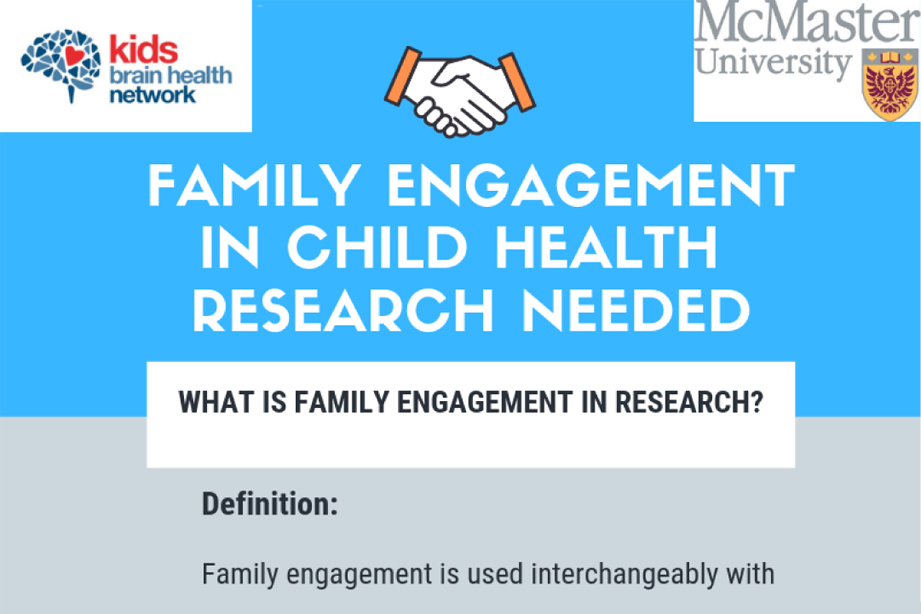Family Engagement in Child Health Research Needed
January 13, 2021 | Uncategorized

This infographic highlights the need for family engagement in child health research. The infographic provides a definition of family engagement in research and then outlines the reasons for researchers and benefits for families.
Authors: Crystal Shannon and Kirsti Mardell
Please click the following links to download the documents: